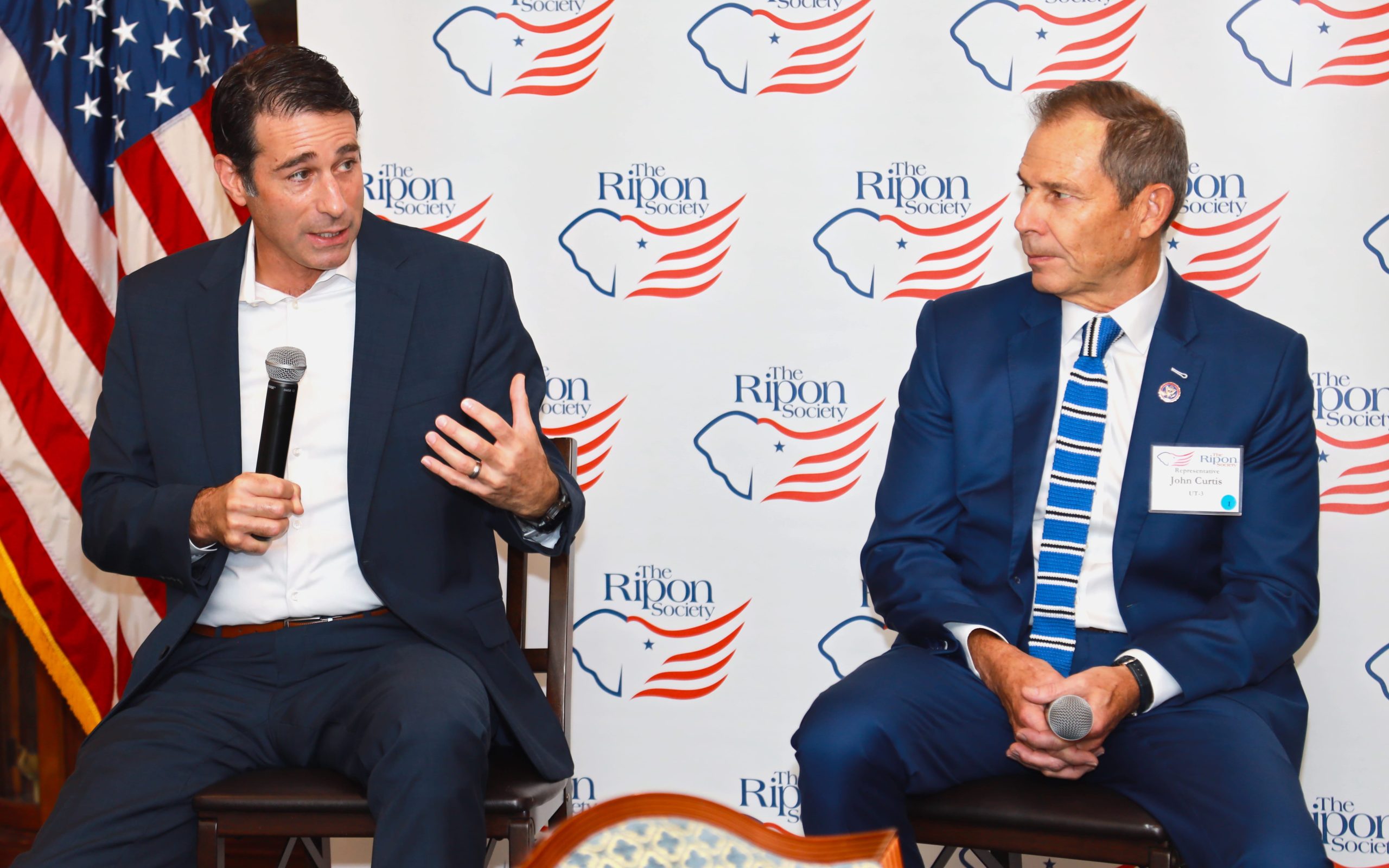
Graves & Curtis Underscore the Need to Provide Conservative Solutions to Climate Change
WASHINGTON, DC – Republicans have a strong legacy on the environment. Abraham Lincoln set aside land for Yosemite. Theodore Roosevelt established five national parks, 150 national forests, and 55 wildlife refuges. Richard Nixon signed into law the Endangered Species Act and created the EPA. In recent years, however, the GOP has been conspicuously silent on what has become one of the most pressing challenges of our time — climate change.
Two Republican members of the U.S. House of Representatives want to change that. The members are Garret Graves (LA-6) and John Curtis (UT-3). Graves serves as Ranking Member of the House Select Climate Committee, while Curtis serves as Chairman of the Conservative Climate Caucus. Both appeared before a breakfast meeting of The Ripon Society this past Thursday to discuss not only the fact that climate change is real, but the need to develop conservative solutions that help the environment without harming the economy.
“In Washington, you don’t see issues evolve quickly very often,” Graves stated, kicking off the discussion. “But this one is one that has really changed. Years ago, I remember working on this and it was one of these issues that you would bring up like other very controversial topics … things that are just immediately polarizing and have very little middle ground. But that is not so much the case over the last few years. We’ve seen a shift.”
“And in this case, I think that we’re moving in a direction that makes sense — moving in the direction of reducing emissions and clean energy. It makes sense. But the science also indicates that this is a global issue. And the reality is that over the last 17 years, the United States has led the world in reducing emissions.”
“So when we’re talking to Republicans, we’re not going in and saying, ‘Hey, we’re asking you to do a 180.’ Instead, we’re asking them to look carefully at the ways the United States has worked to reduce emissions and improve conservation and efficiency while doing so in a way that doesn’t disrupt the economy … There’s a great conservative message here.”
Curtis agreed.
“During my first four years here in Washington,” the Utah Republican recounted, “I had the realization that I did not have to leave my conservative credentials at the door to have a significant role in making a difference in our climate.”
“With a lot of help, from Garret and others, we started an effort to bring Republicans together to talk about climate and to get our climate feet underneath us. And we call that the Conservative Climate Caucus … Now, remember, the very first tenant of the Caucus is the climate is changing. And decades of the industrial revolution has had an impact on it. Man has had an impact on it.”
“Within a few days, [the Caucus] had 70 members with almost no recruitment on our part. Seventy Republican members who stood up and said, ‘I am tired of being branded as not caring about this earth. I’m tired of being branded as denying the science.’ And that is what has happened as a result of us not liking this conversation. We got branded as not caring. We got branded as denying the science.”
According to Curtis, this flew in the face of the history of the GOP.
“Republicans are the traditional protectors of this earth,” he declared. “If I mention the EPA, it freaks a lot of my Republican colleagues out. But it was Richard Nixon who established the EPA, right? Republicans have their names on all of this. And yet we’ve allowed ourselves to be branded as not caring, which is just simply not true. So today the Conservative Climate Caucus has 70 members — one third of all House Republicans — and our mission is to educate Republicans.”
Following their opening remarks, Graves and Curtis took a number of questions, including one about next year’s mid-term election and whether climate change will play a role in the campaign.
“I’m in a very, very conservative district,” Curtis stated. “It’s R+26. And though climate probably won’t determine the outcome of my election today, I think it will in several cycles. I think there are districts around the country that are much more competitive, and I would not want to be a Republican out there in one of those tough districts without my climate feet underneath me, without a message, and without a plan.”
Graves concurred.
“In the solid ‘red’ districts, is this going to be a moving issue?,” the Louisiana lawmaker asked. “I don’t know that it is. In those independent districts nationally? It is going to be an issue, and it particularly is an issue in areas where you have younger voters.”
“Depending on the demographics and depending on a district, this is an issue that may not be worth 10 points on election day. But it may be worth just enough to change the outcome of a race… I don’t see any scenario where the climate doesn’t continue to raise in profile, importance, and urgency.”
To view Graves’ and Curtis’ remarks before The Ripon Society breakfast discussion Thursday morning, please click on the link below:
The Ripon Society is a public policy organization that was founded in 1962 and takes its name from the town where the Republican Party was born in 1854 – Ripon, Wisconsin. One of the main goals of The Ripon Society is to promote the ideas and principles that have made America great and contributed to the GOP’s success. These ideas include keeping our nation secure, keeping taxes low and having a federal government that is smaller, smarter and more accountable to the people.



